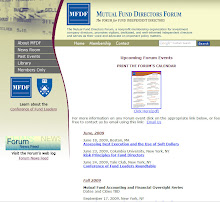The National Association of Corporate Directors, with the support of the Business Roundtable, an association of CEOs of leading U.S. companies, has released guidance entitled, Key Agreed Principles for Strengthening Corporate Governance. Though not aimed specifically at fund directors, the principles identify some core areas that boards, management, and shareholders agree should be the basis for good corporate governance, and should be instructive and useful to fund directors as well. The authors, including Ira Millstein and Holly Gregory and their colleagues at Weil, Gotshal & Manges LLP, hope that the document will help to improve the quality of discussion and debate about governance issues generally.
These Key Agreed Principles reflect the distillation and articulation of fundamental principles-based aspects of governance on which there appears to be broad consensus. They are intended to describe the current baseline consensus and thereby to help improve the quality of discussion and debate about governance issues that have not yet gained consensus.The document approaches the principles with a recognition that "one size does not fit all," and recommends using the principles "in thinking through and tailoring their own governance structures and practices to meet the needs of their respective communities." Again, though not aimed specifically at fund governance practices, the corporate governance principles are generally applicable, and should be considered:
- Board Responsibility for Governance: Governance structures and practices should be designed by the board to position the board to fulfill its duties effectively and efficiently.
- Corporate Governance Transparency: Governance structures and practices should be transparent— and transparency is more important than strictly following any particular set of best practice recommendations.
- Director Competency & Commitment: Governance structures and practices should be designed to ensure the competency and commitment of directors.
- Board Accountability & Objectivity: Governance structures and practices should be designed to ensure the accountability of the board to shareholders and the objectivity of board decisions.
- Independent Board Leadership: Governance structures and practices should be designed to provide some form of leadership for the board distinct from management.
- Integrity, Ethics & Responsibility: Governance structures and practices should be designed to promote an appropriate corporate culture of integrity, ethics, and corporate social responsibility.
- Attention to Information, Agenda & Strategy: Governance structures and practices should be designed to support the board in determining its own priorities, resultant agenda, and information needs and to assist the board in focusing on strategy (and associated risks).
- Protection Against Board Entrenchment: Governance structures and practices should encourage the board to refresh itself.
- Shareholder Input in Director Selection: Governance structures and practices should be designed to encourage meaningful shareholder involvement in the selection of directors.
- Shareholder Communications: Governance structures and practices should be designed to encourage communication with shareholders.





